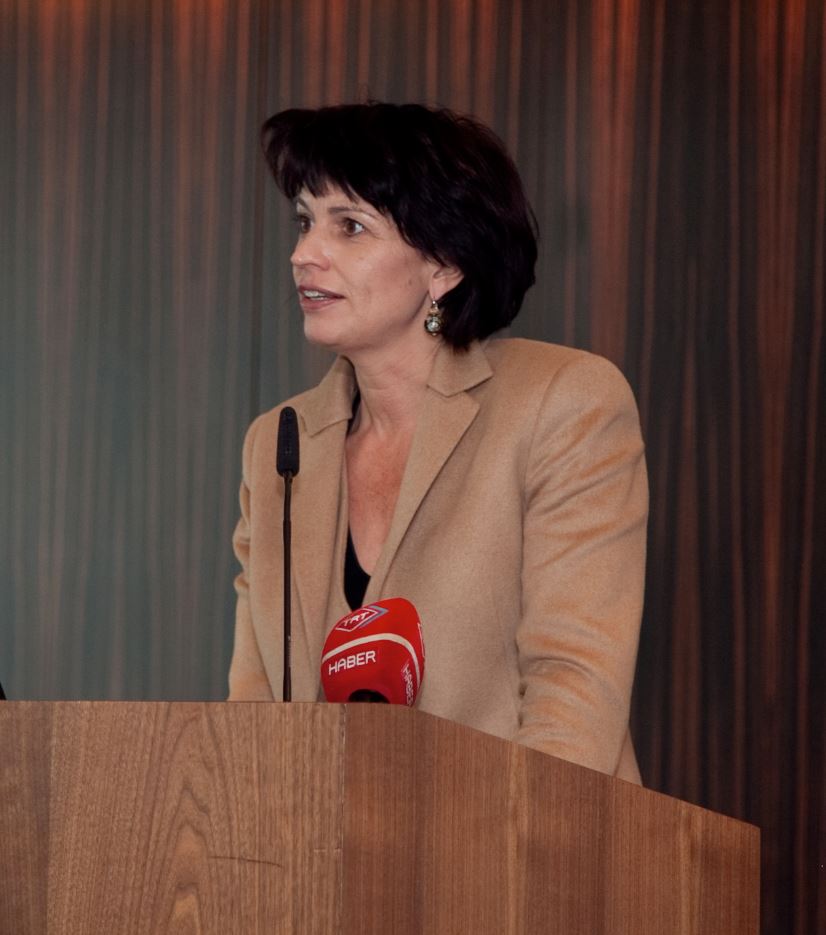Digital infrastructures: drivers of a modern Switzerland
Prosperity, welfare and quality of life in security - these are the goals on the way to a digital society. At the fourth Infrastructure Day of the Federal Department of the Environment, Transport, Energy and Communications (DETEC), Federal Councillor Doris Leuthard advocated the digital expansion and digital networking of infrastructures, the economy and society.

Because information and communication technologies (ICT) are a key infrastructure for the 21st century, DETEC, together with the Chair Management of Network Industries MIR at EPFL, dedicated this year's Infrastructure Day to this topic. As Federal Councillor Leuthard explained, ICT must be developed and applied in a cross-sectoral and networked manner. In addition to the promotion of ICT infrastructures, the focus is on the digital networking of politics, business and society and on increasing value and efficiency for the Swiss workplace. The Federal Council's strategy for an information society is to be further developed into an actual digitization strategy. Only with this transformation into a digital economy and society will Switzerland remain competitive. However, there is still a lot of catching up to do in various areas, such as healthcare and mobility. Switzerland is in a top position in terms of infrastructure, but needs to act faster. "We need to be with the frontrunners."
Digital revolution
EU Commissioner Günther H. Oettinger emphasized that the European Union, as well as the world, is experiencing a digital revolution. As part of this revolution, the amount of data will increase exponentially. Advances in technology and investments in these technologies are therefore urgently needed. The right framework conditions for investment are necessary for this to happen. This also includes data security. It must therefore become a badge for Europe. Europe must define norms and standards and be able to control processes. This would only be possible within a European framework. The fragmentation in 28 national silos must be overcome by uniform European approaches. A single European market is indispensable for this. Otherwise, Europe will end up in a sandwich position between the United States and China. Switzerland certainly has the greatest interest in a seamless, nationwide infrastructure. Today, Europe is still far away from comprehensive networking, as Commissioner Oettinger demonstrated with the example of a trip from Stuttgart to Lombardy: with the same currency and without border controls, but with each national territory crossing, a short radio gap due to the change of national network providers. Professor Jürg Leuthold of the Department of Information Technology and Electrical Engineering at ETH Zurich explored the question of when technology and physics will set firm limits on further communications and what solutions can be expected in the future to cope with further growth. Samuel Rutz, a member of the executive board of Avenir Suisse, outlined the economic and social challenges associated with digitalization. He also showed who could be the winners and losers of the digitalization of the future.
Philipp Metzger, Director of the Federal Office of Communications (OFCOM), pointed out the increasingly complex environment, which requires new forms of cooperation between the state and stakeholders. In addition, he said it was high time to modernize the Swiss Telecommunications Act and create promising framework conditions for mobile communications.
Dieter Bambauer, member of the Executive Board of Swiss Post, Yves Zumwald CEO Swissgrid ad interim, Ruedi Noser, National Councillor FDP (ZH) and Ivo Furrer, CEO SwissLife Switzerland, took part in the panel discussion. Digitalization should ultimately be used for the benefit of Switzerland as a business location and the people in this country. To this end, a secure and internationally competitive network structure that is accessible to all and new interdisciplinary collaborations must be established.
Press release DETEC









